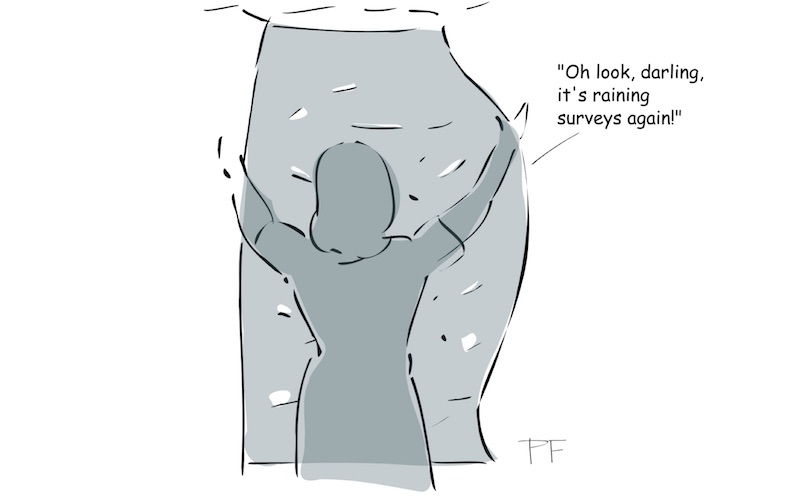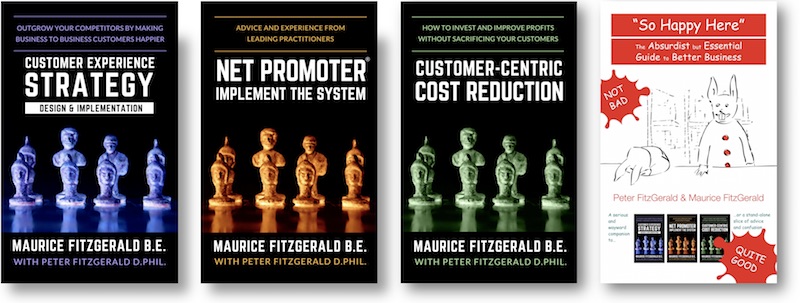The nature of customer-centric strategy and why your team needs one (Intense 3-minute read)
I have been broadening my writing horizons somewhat over the last few weeks. Among others, I have contributed thoughts on customer strategy to discussion on LinkedIn, Quora and the members-only forum of the Customer Experience Professionals Association. I suppose I should not be surprised by what I read online, but I was.
99% of all customer experience discussion seems to be about metrics. This is just wrong!
Data is easy, information is difficult
The reality is that it does not matter all that much whether you use CSAT, NPS, Customer Effort Score, the Wallet Allocation Rule, or whatever. The critical question you have to answer is what you are going to do to improve. The metric itself and even its trend does not give you that information. The most important data gathering question is how you can determine the top few actions you can take to improve customers’ lives and thereby your business. (This applies equally well to government agencies with no financial objectives.)
Strategy is all about how you deploy your scarce resources
You can’t do much. By this I mean that effective strategy is about winning. Nobody wins a military battle or a sports competition by deploying all resources equally over the entire field of battle. You have to decide on one or two things, try them, then adjust. Then start again. You don’t have unlimited people and money. Whether at the level of an individual business or function, or at the level of an entire company, you have to concentrate resources on just a few initiatives that will let you crush your competition.
Having lots of metrics can prevent you developing an effective strategy.
What do you need to know about your customers?
From a customer experience perspective, you want to know just three things:
- How much do your customers like you, ideally compared to your competitors?
- Why do they like or dislike you?
- What do they want you to improve?
There is nothing else worth knowing from their point of view. This does not seem to be the point of view of hundreds of business professionals online, all of whom seem to want to know many many things about their customers. There is a fundamental truth about customer research: you have to provide more value to customers than you extract. Unless they have told you it is critical, it does not provide value to customers to get their view on how pretty the shipping carton was, or how much they like the color of your new logo.
If there is some consistency in what customers want you to improve, you pick the most important items, set up a team to drive each improvement, tell the customers you are doing so, and execute. You should only have about three such initiatives at any given time. That will make them easy to communicate and understand internally and externally.
What do you not need to know about your customers?
To pick a semi-random example, you don’t need to know anything about the perceptions of the professionalism of your service agents unless customers have said it is a major problem. So, don’t ask about it. I believe the only things worth researching beyond the three questions mentioned above are additional levels of detail you may need to define your improvement initiative correctly. There are too many surveys out there. Adding more, particularly ones that will not contribute to any major improvement initiative in any way, is insulting to your customers and to your own teams.
I make similar points in a lot more detail in our book Customer Experience Strategy – Design and Implementation. All of our books are available in paperback and Kindle formats from Amazon stores worldwide.




